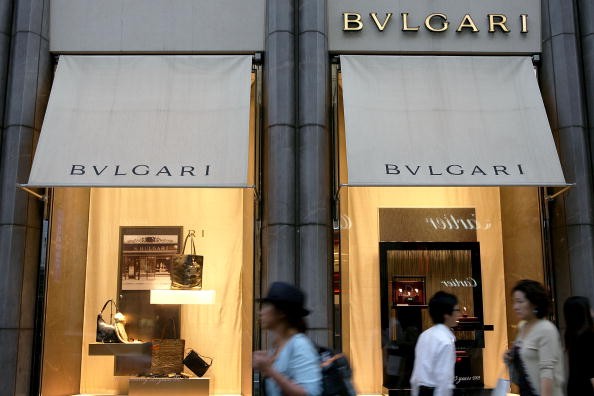Italian designer brand Bulgari is stepping up its investments in China, in the hopes of tapping into the growing reluctance of Chinese shoppers to buy abroad due to security fears, stricter customs checks and the recent devaluation of the yuan.
Bulgari, which is the world's third largest watch and jewelry brand and part of the luxury goods giant LVMH, plans to open two boutiques in the mainland this year, the company's CEO Jean-Christophe Babin said. The stores are on top of three in 2015.
"If you see there is a potential swing with more mainland and less travel proportion, it's one more reason to speed up your mainland investments," Babin told Reuters on Saturday at the World Economic Forum in Davos.
China's economy rose by 6.9 percent in 2015, its slowest rate in 25 years, putting a damper on China's consumer spending in everything from food to trips overseas. These foreign visits have often been an occasion for purchases of luxury items, as these allow shoppers to avoid the hefty taxes imposed in China.
Babin noted that many Chinese consumers are also nervous about traveling to Europe and other places due to the terror attacks in Paris in November, where 130 people were killed.
"If we sell fewer watches to Chinese when they travel--Paris obviously because people are a bit scared--we see conversely a strong increase in our business in the mainland," he noted.
The shift to domestic purchases is also partly due to the devaluation of the yuan, which makes it more expensive to purchase goods abroad, as well as tightened checks by Chinese customs officials in purchases made overseas.
Chinese tourists returning from overseas are becoming subject to stricter customs controls on what they bring back, Babin said, noting that watches in particular are subject to a 30-percent levy plus a penalty that is a multiple of that for anyone caught not declaring the purchase.
"People are quite scared to buy a $10,000 watch in Zurich or Tokyo and eventually have to pay twice as much as they originally paid," he added.
Bulgari, with annual sales estimated at 1.5 billion euros ($1.62 billion) to 2 billion euros, is third in line behind Richemont's Cartier and Tiffany & Co.
"More than ever it makes a lot of sense for Bulgari to invest in China," said Babin.
Chinese consumers, whether shopping at home or overseas, comprise more than 30 percent of sales of Swiss watch, according to a report by Sina English.
In a report published Wednesday by Bain Consulting, China's spending on luxury items fell by 2 percent year-on-year in 2015 to just 113 billion yuan ($17.2 billion).
Chinese luxury spending on menswear, watches and accessories experienced the sharpest drop by 12 percent, 10 percent and 6 percent, respectively, the report said.




























